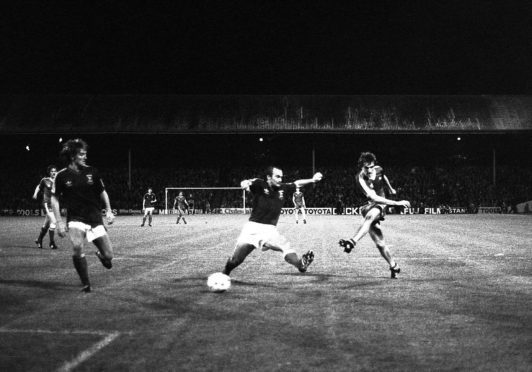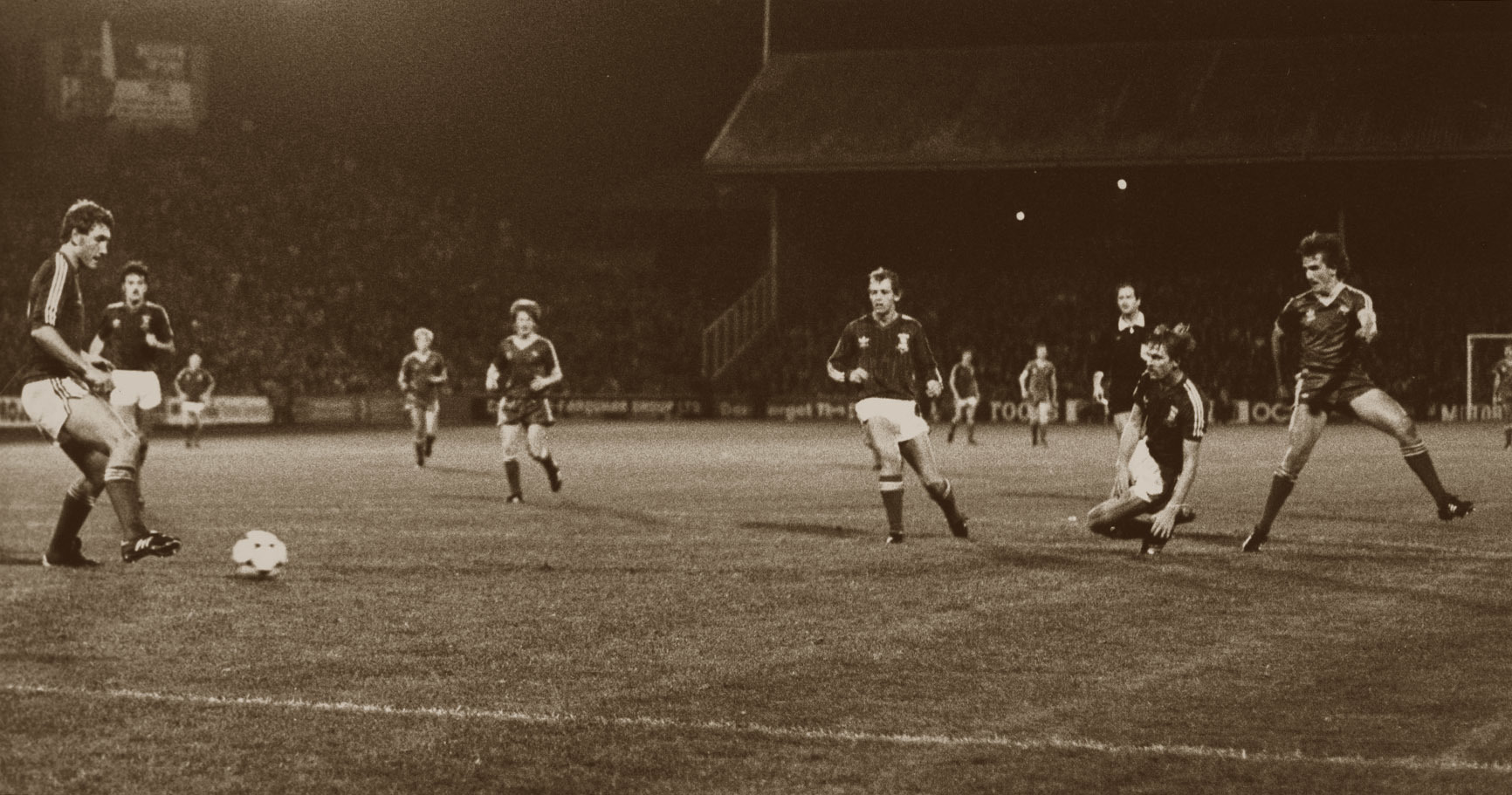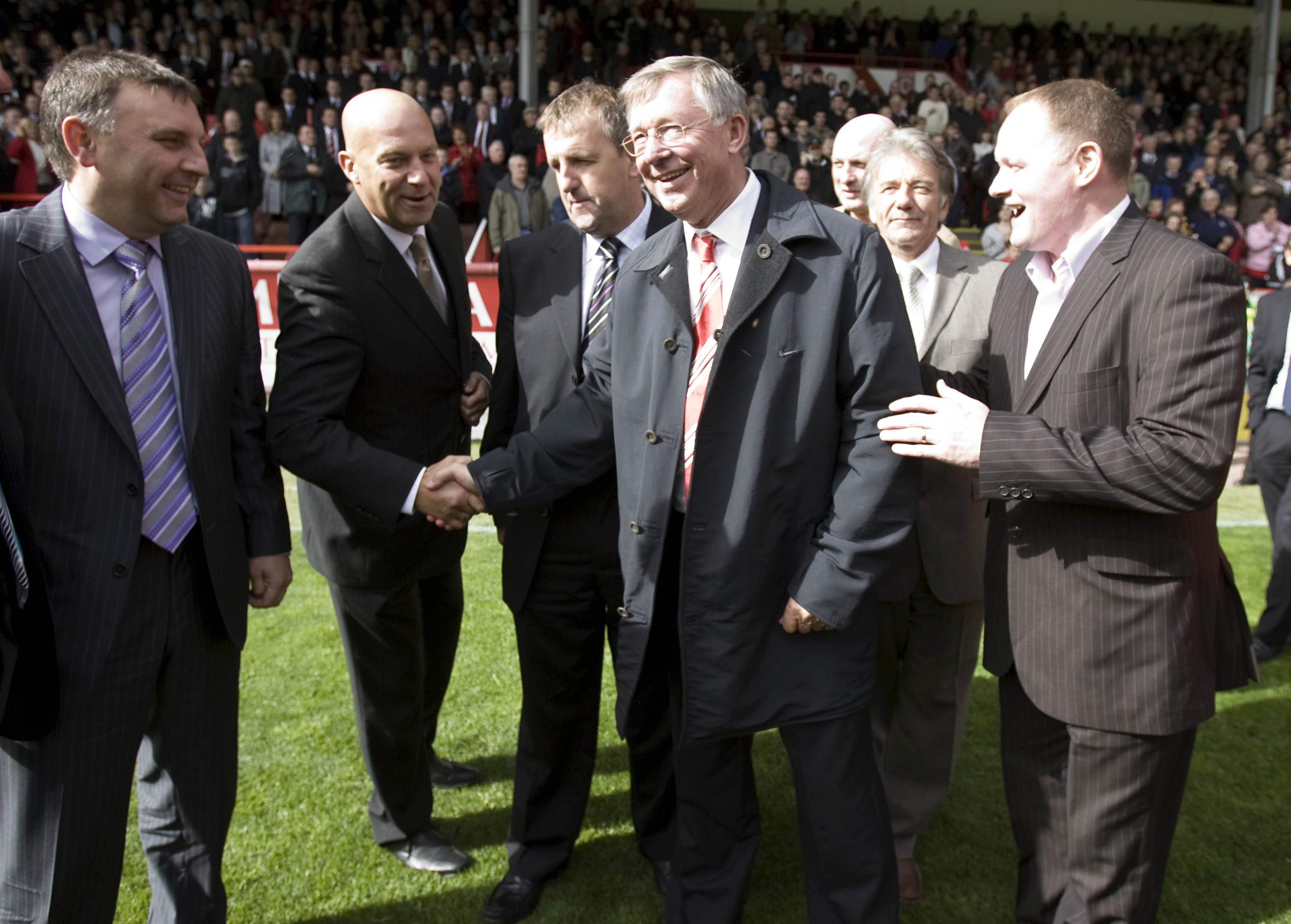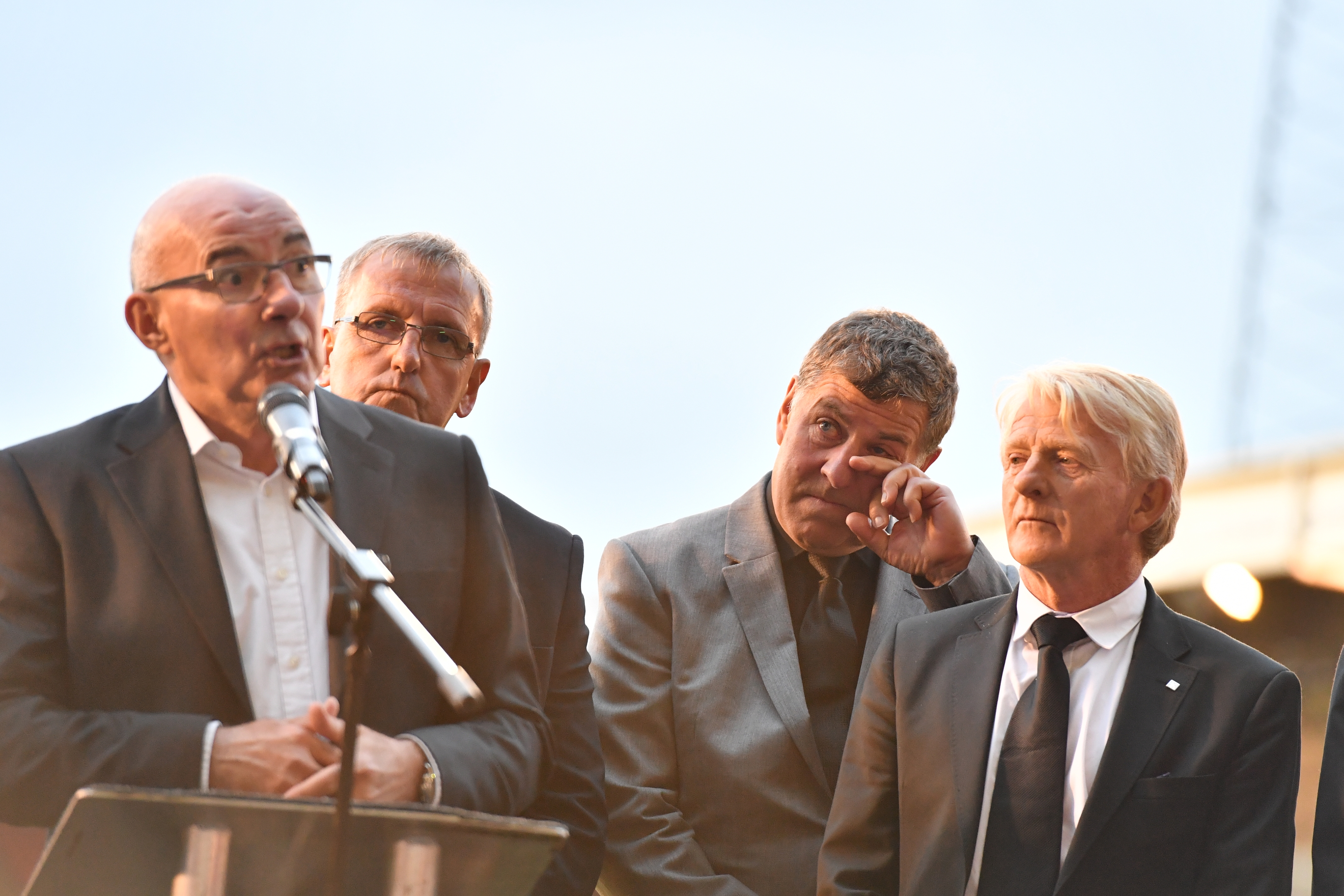Two-goal Peter Weir has surely made it safe for Aberdeen now.
Those words, in the revered tones of Brian Moore, sum up the night the Uefa Cup holders Ipswich Town were humbled at Pittodrie by a Dons side that was only beginning to explore the perimeters of its potential.
Weir was the Paisley-made destroyer-in-chief, making England international full-back Mick Mills look more schoolboy than Tractor Boy. Two precise finishes, one with each foot, left Paul Cooper flailing at thin air. An Ipswich team containing all of their victorious side from the year previous – Terry Butcher, Alan Brazil, John Wark, Arnold Muhren and Paul Mariner to name a few – and managed by the late Sir Bobby Robson had their name scrubbed off the trophy.
It is nearly 37 years since that night and, until tomorrow’s second qualifying round tie against Burnley, the last time Aberdeen faced English opposition in Europe. They could do worse than following a similar script.
Weir said: “It was a great night for Aberdeen, beating the Uefa Cup holders.
“They thought we were there to beat. We believed in ourselves and gave it our best shot – two years later we won the Cup Winners’ Cup. We took confidence from beating a team like that. Aberdeen have got to play at their best, hope Burnley are not fit enough and they get a wee break, which you need.”
A John Hewitt equaliser in the game at Portman Road had given Sir Alex Ferguson’s side a launch pad for progression.
The second leg started with Gordon Strachan capitalising on a dawdling Wark, nipping in like a fleet-footed waif to retrieve possession in the box before being chopped down. The future Scotland manager did his duty from the spot to hand the hosts the advantage.
Wark made amends at the other end when Neale Cooper felled Eric Gates, to level the tie. Enter Weir. He danced inside Mills and whistled a shot through Frans Thijssen’s legs, nestling neatly in Paul Cooper’s left corner. With five minutes remaining it was time for the left foot to do Weir’s work, as he drove into the box and arrowed a shot into the exact same spot.
“I can remember that night well,” he said. “I scored one with my right and one with my left. Sir Alex never sent us out thinking we were going to get beat.
“I’m not saying we thought we’d win everything but we believed if we gave it our best shot then it could happen over the two games. They had a fantastic manager in Sir Bobby Robson and didn’t expect to lose to us.”
Ferguson was the mastermind, motivator and father-figure behind the Dons’ era of success. He was influential in Weir’s own career, taking him from obscurity to St Mirren before re-signing him for his boyhood club.
Weir said: “He signed me twice, which was great for me personally. I didn’t really work with him at St Mirren; although he signed me, he left not long after. He paid money for me at Aberdeen and it was a great time in my career, playing for the club I supported.
“Some players couldn’t handle it when he had a go at you. We all got the ‘hairdryer’. But you had to knuckle down, play harder and train harder. Aberdeen was the glory years for most of us – we had a tremendous squad and team spirit.”
The halcyon days of humbling European champions has gone but the spotlight is once again on the Granite City.
Burnley, on the back of a superb seventh-placed finish in last season’s Premier League, return to Europe after 51 years intent on not making it a one-stop sojourn.
Odds are against the Dons repeating the heroics of September 1981. But proving a point about themselves and the state of Scottish football, to those who may look down their noses at it, has presented itself.
Weir said: “It’s always a good battle playing the English teams. Burnley have done very well – they’re a hard, stuffy team and it’s a great draw for Aberdeen. They maybe expected something easier but why not?
“The arrogance is not going to change. They’ve got a bigger and better league and more money, there’s no doubt about that. We played Ipswich in 1981 when they were Uefa Cup holders; they had the Dutch contingent, as well as English and Scottish internationals. No-one thought we could beat them but we did.
“Aberdeen need players and I hope Derek gets them in to give them a chance. English clubs start later and that gives Aberdeen a chance fitness-wise. Burnley are playing in a top league with better opponents and more money. They are favourites, everyone knows that. But it was the same when we played Ipswich.”



